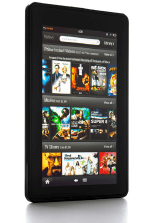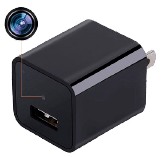
July 2018

Boundaries For Leaders
By Dr. Henry Cloud
Being an effective leader requires more than tracking employee performance and guiding your team to success. You need to create a business environment that enables your team to function at their highest potential.
In “Boundaries for Leaders,” Dr. Henry Cloud breaks down seven “leadership boundaries” that are crucial to maximizing productivity and success throughout your organization, from
facilitating employee focus on what matters most, to identifying ways for your team to take ownership of projects in order to drive results. If you’re a leader in any capacity, it’s a vital read that will give you a big-picture overview of strategies to push your team to the next level.

Top 4 Ways Hackers Will Attack Your Network
And They Are Targeting You RIGHT NOW
Most small- and midsize-business (SMB) owners exist in a bubble of blissful ignorance. They focus on the day-to-day operations of their organization, driving growth, facilitating hiring and guiding marketing, without a single thought given to the security of the computer networks these processes depend on. After all, they’re just the little guy – why would hackers go to the trouble of penetrating their systems for the minuscule amount of data they store?
And eventually, often after years of smooth sailing through calm seas, they get hacked, fork out thousands of dollars to malicious hackers and collapse beneath the weight of their own shortsightedness.
The facts don’t lie. According to Verizon’s annual Data Breach Investigations Report, a full 71% of cyber-attacks are aimed squarely at SMBs. And while it’s unclear exactly how many of these attacks are actually successful, with the sad state of most small businesses’ security protocols, it’s a safe bet that a good chunk of them make it through.
But why? As Tina Manzer writes for Educational Dealer, “Size becomes less of an issue than the security network… While larger enterprises typically have more data to steal, small businesses have less secure networks.” As a result, hackers can hook up automated strikes to lift data from thousands of small businesses at a time – the hit rate is that high.
Today, trusting the security of your company to your son-in-law, who assures you he “knows about computers,” isn’t enough. It takes constant vigilance, professional attention and, most of all, knowledge. Start here with the four most common ways hackers infiltrate hapless small businesses.
Help Us Out And We’ll Give You A Brand-New Kindle Fire For Your Trouble

We love having you as a customer and, quite honestly, wish we had more like you! So instead of just wishing, we’ve decided to hold a special “refer a friend” event during the month of July.
Simply refer any company with 10 or more computers to our office to receive a FREE computer network assessment (a $397 value). Once we’ve completed our initial appointment with your referral, we’ll rush YOU a free Kindle Fire of your choice as a thank-you (or donate $100 to your favorite charity ... your choice!).
Simply call us at [phone-number location="3816 - Ranger Business Solutions" source="primary"] or email us at info@rangersolutions.com with your
Leadership Is Lacking

Professor and leadership expert James O’Toole once said that “95 percent of American managers today say the right thing… 5 percent actually do it.” I’m confident this is more true today than ever before. When I look around at the current business landscape, I see poor leadership destroying companies from the inside out. Disengaged employees, and especially those who abandon an organization altogether, cost companies billions of dollars each year, and as they say, people don’t leave companies – they leave bosses. 46 percent of employees leave their job because they feel underappreciated, while 75 percent of employees cite their boss as the most stressful part of their job.
Luckily, the inverse of this is also true: Great leaders find that happy employees are 31 percent more productive, and 56 percent more effective at sales!
But what makes a great leader? A truly excellent leader makes people believe in themselves, feel good about working for the company, and, most importantly, feel special about being chosen to work there. Ralph Hart, a former CEO for Heublin, a company with thousands of employees, made it a policy to personally greet every new hire. He’d sit down with them during the first month of their employment to have a short chat and let them know just how he and the company felt about them joining on. He would tell them that “The company you are working for is first-class. I want you to know we have first-class products, first-class marketing, first-class advertising and first-class customer service.” However, he’d always stress that, “To be able to list everything we do as first-class, we have found that we must hire only first-class people!” He made sure they knew that he was delighted to have them on the team.
In less than two minutes, this CEO made an enormous impact on his new employee. They couldn’t believe that the CEO of this huge company even knew their name, much less believed that they were a firstclass talent. There’s nothing better than making someone feel special – nothing better than telling someone you believe in their abilities.
Ralph Hart knew better than anyone that how you treat your employees is how they will treat your customers and associates. If you want first-class employees, then treat them as such. They’ll respond in turn by going out of their way to do more, deliver more, help more, innovate more and stick around for the long term.
When you think about your employees’ needs ahead of your own, the success of your business will take care of itself. If you show them that you are concerned about them advancing in their career, then they will help your company prosper. When you help them to succeed, they will help you succeed. Your relationship will grow and the need to micromanage will never be a concern.

Robert Stevenson is one of the most widely recognized professional speakers in the world. Author of the books How To Soar Like An Eagle In A World Full Of Turkeys and 52 Essential Habits For Success, he’s shared the podium with esteemed figures from across the country, including former President George H.W. Bush, former Secretary of State Colin Powell, Anthony Robbins, Tom Peters and Steven Covey. Today, he travels the world, sharing powerful ideas for achieving excellence, both personally and professionally.

Shiny New Gadget of the Month:
Introducing The Snap SmartCam
Today, the security of your home is more important than ever before. Lawbreakers are constantly getting bolder, and as our technology advances, they switch up their tactics. With that in mind, all of us should be on the lookout for a security camera that’s difficult to spot, is intelligent about the footage it collects, and grabs high-quality footage to identify burglars.
Enter the Snap SmartCam, a tiny little camera that looks – and operates – just like a phone charger. The innocuous-looking device uses motion-detecting technology to pick up when shady activity is going on in your house, and takes high-quality footage to catch a person in the act. If you’re interested, the camera will cost you $57 at the time of writing, a great deal for a security camera of any type, much less one that seems so useful.
To Truly Succeed, You Need To Change The Game
To survive, most companies don’t need to follow the pattern of disruptive innovators, inching into a miniscule portion of market share each quarter. Instead, they should look to what they’re already good at and amplify their skills, while keeping an eye on potential applications for the future. Blockbuster underestimated the impact Netflix would have on the market. John Deere saw the power of big data and decided to implement it in new gamechanging technology. The iPhone completely changed the world with its forward-thinking design.
Successful companies differ from those that fail by maintaining a firm vision for the future. They don’t just disrupt the market in the short term – they try to change the business landscape for good.
What To Do BEFORE You Go To Starbucks

You’re in the car on the way home from Starbucks, basking in the glowing of your triple-shot, low-foam, extra hot pumpkin spice latte when you suddenly realize your laptop has gone missing. You drive back to the store like a caffeinated lunatic, only to discover no one has turned it in. What do you do?
Well, first you should notify your IT department (us!) immediately to tell them your device has gone missing. That way, we can change passwords and lock access to applications and data. We can also remotely wipe your device to make sure no one will be able to gain access – a key reason it’s critical to back up your data on a daily basis.
Next, change ALL the passwords to every website you regularly log into, starting with any sites that contain financial data or company data. If your laptop contained others’ medical records, financial information, or other sensitive data (social security numbers, birthdays, etc.), you should contact a qualified attorney to understand what you may be required to do by law to notify the affected individuals.
An ounce of prevention is worth a pound of cure, so make sure you’re engaging us to encrypt/back up your data, and put remote monitoring software on all your mobile devices. Put a pin-code lock or password requirement in place to access your devices after 10 minutes of inactivity, and get in the habit of logging out of websites when you’re done using them.
6 Surefire Ways To Protect Yourself From Data Leaks, Hacks, And Scandals
- Reconsider what you put online. This goes beyond social media posts. Even sharing your telephone number with a store associate can come back to bite later.
- Use password managers. This way, you can use different, randomized passwords for all your sites without losing track of them.
- Use two-factor authentication. It’s a nobrainer.
- Encrypt the information on your drive. It’s easier than it sounds!
- Read privacy policies, otherwise you may be signing away more than you think.
- Monitor your credit. That way, if someone tries to use your info to make a big purchase, you can stop it in its tracks.
Inc.com, 4/26/18



